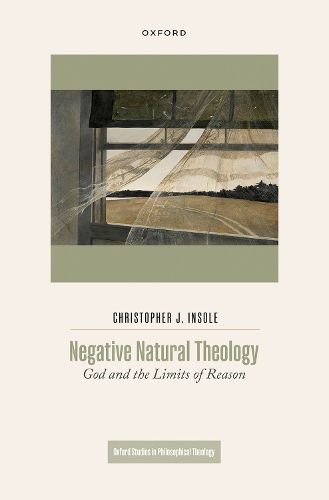Readings Newsletter
Become a Readings Member to make your shopping experience even easier.
Sign in or sign up for free!
You’re not far away from qualifying for FREE standard shipping within Australia
You’ve qualified for FREE standard shipping within Australia
The cart is loading…






How can we live in harmony with the universe, and not just in it? What is it to feel at home in the world? Some thinkers who feel the force of these questions reach for the concept of God. Others do not. This book asks what might be at stake in the choice of whether or not to speak about God: not just in terms of abstract reasoning or arguments about God, but in relation to deeper undercurrents of motivation and yearning. The book is interested in sites in contemporary thinking, where the concept of the divine beckons, or looms, but also, perhaps, repels, or hides. It asks 'what is at stake' in the decision (if it is that) to talk about God and the divine, or not to do so, with a wide and deep curiosity about what this might include: reasons and arguments, certainly, but also more biographical, intuitive, and affective dimensions, including imagination, and feelings about what is valuable. Also relevant are unconscious drives and factors. Concepts can convince, or fail to convince, but, also, they can attract and repel. The book draws on both analytical and continental post-Kantian sources, treating individual thinkers such as Immanuel Kant, William James, Carl Jung, Karl Rahner, Albert Camus, Saul Kripke, Thomas Nagel, Derek Parfit, Karen Kilby, and Janet Soskice, as well as cultural movements such as modern paganism, new atheism, and humanism. 'Natural theology' involves speaking about God without reference to revelation, tradition, or sources of authority, using the resources of 'reason alone'. 'Negative theology' is concerned with the way in which a type of abstract reasoning and rational argument run out, without this necessarily being an ending: other types of speech and communication may become possible and essential. Speaking into this space, the book draws on philosophy, theology, anthropology, literature, and psychology.
$9.00 standard shipping within Australia
FREE standard shipping within Australia for orders over $100.00
Express & International shipping calculated at checkout
How can we live in harmony with the universe, and not just in it? What is it to feel at home in the world? Some thinkers who feel the force of these questions reach for the concept of God. Others do not. This book asks what might be at stake in the choice of whether or not to speak about God: not just in terms of abstract reasoning or arguments about God, but in relation to deeper undercurrents of motivation and yearning. The book is interested in sites in contemporary thinking, where the concept of the divine beckons, or looms, but also, perhaps, repels, or hides. It asks 'what is at stake' in the decision (if it is that) to talk about God and the divine, or not to do so, with a wide and deep curiosity about what this might include: reasons and arguments, certainly, but also more biographical, intuitive, and affective dimensions, including imagination, and feelings about what is valuable. Also relevant are unconscious drives and factors. Concepts can convince, or fail to convince, but, also, they can attract and repel. The book draws on both analytical and continental post-Kantian sources, treating individual thinkers such as Immanuel Kant, William James, Carl Jung, Karl Rahner, Albert Camus, Saul Kripke, Thomas Nagel, Derek Parfit, Karen Kilby, and Janet Soskice, as well as cultural movements such as modern paganism, new atheism, and humanism. 'Natural theology' involves speaking about God without reference to revelation, tradition, or sources of authority, using the resources of 'reason alone'. 'Negative theology' is concerned with the way in which a type of abstract reasoning and rational argument run out, without this necessarily being an ending: other types of speech and communication may become possible and essential. Speaking into this space, the book draws on philosophy, theology, anthropology, literature, and psychology.